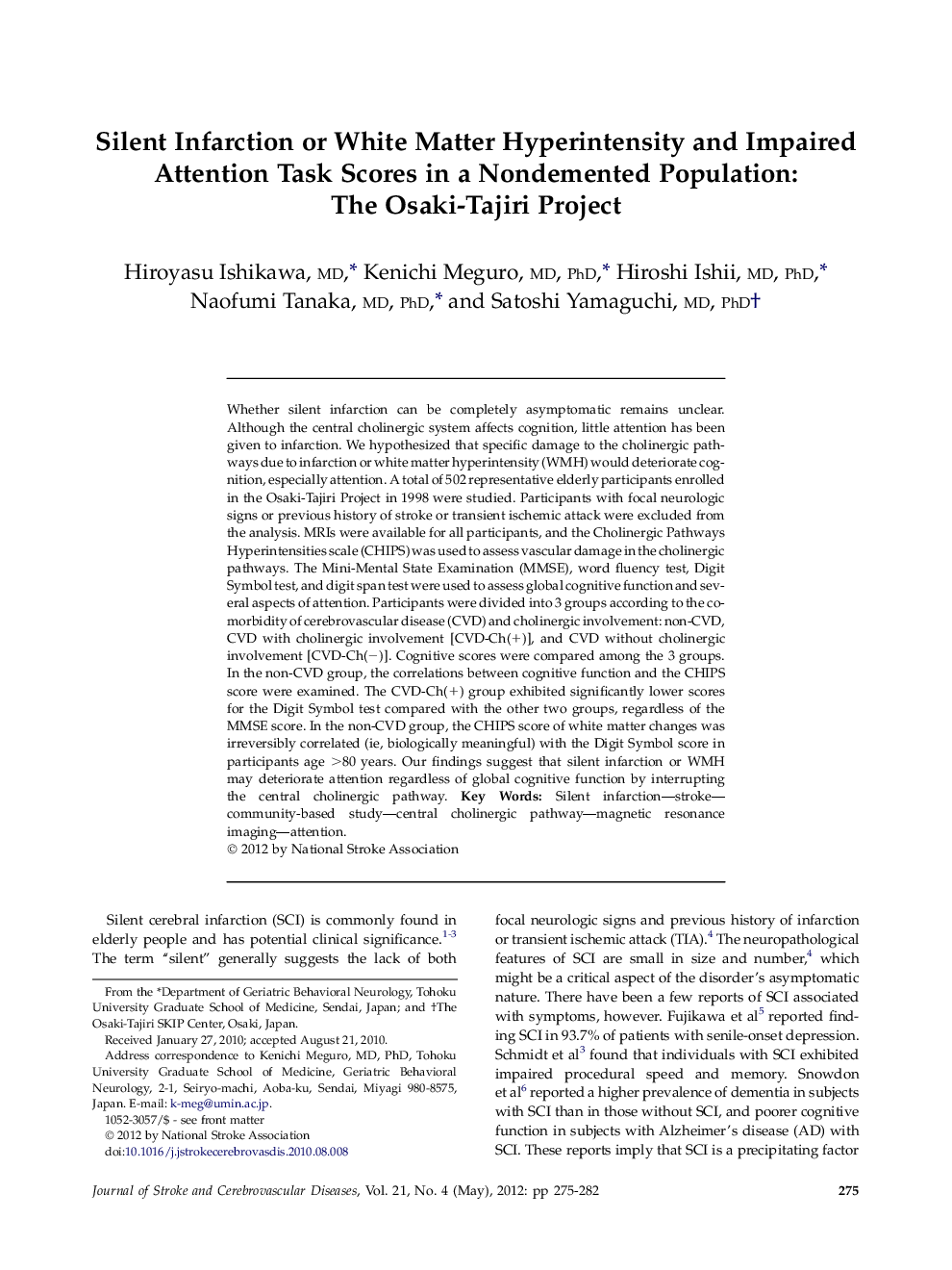| Article ID | Journal | Published Year | Pages | File Type |
|---|---|---|---|---|
| 2711401 | Journal of Stroke and Cerebrovascular Diseases | 2012 | 8 Pages |
Whether silent infarction can be completely asymptomatic remains unclear. Although the central cholinergic system affects cognition, little attention has been given to infarction. We hypothesized that specific damage to the cholinergic pathways due to infarction or white matter hyperintensity (WMH) would deteriorate cognition, especially attention. A total of 502 representative elderly participants enrolled in the Osaki-Tajiri Project in 1998 were studied. Participants with focal neurologic signs or previous history of stroke or transient ischemic attack were excluded from the analysis. MRIs were available for all participants, and the Cholinergic Pathways Hyperintensities scale (CHIPS) was used to assess vascular damage in the cholinergic pathways. The Mini-Mental State Examination (MMSE), word fluency test, Digit Symbol test, and digit span test were used to assess global cognitive function and several aspects of attention. Participants were divided into 3 groups according to the comorbidity of cerebrovascular disease (CVD) and cholinergic involvement: non-CVD, CVD with cholinergic involvement [CVD-Ch(+)], and CVD without cholinergic involvement [CVD-Ch(−)]. Cognitive scores were compared among the 3 groups. In the non-CVD group, the correlations between cognitive function and the CHIPS score were examined. The CVD-Ch(+) group exhibited significantly lower scores for the Digit Symbol test compared with the other two groups, regardless of the MMSE score. In the non-CVD group, the CHIPS score of white matter changes was irreversibly correlated (ie, biologically meaningful) with the Digit Symbol score in participants age >80 years. Our findings suggest that silent infarction or WMH may deteriorate attention regardless of global cognitive function by interrupting the central cholinergic pathway.
